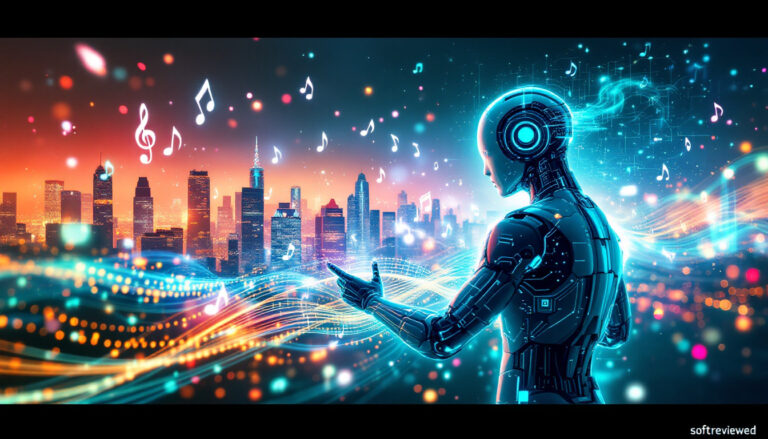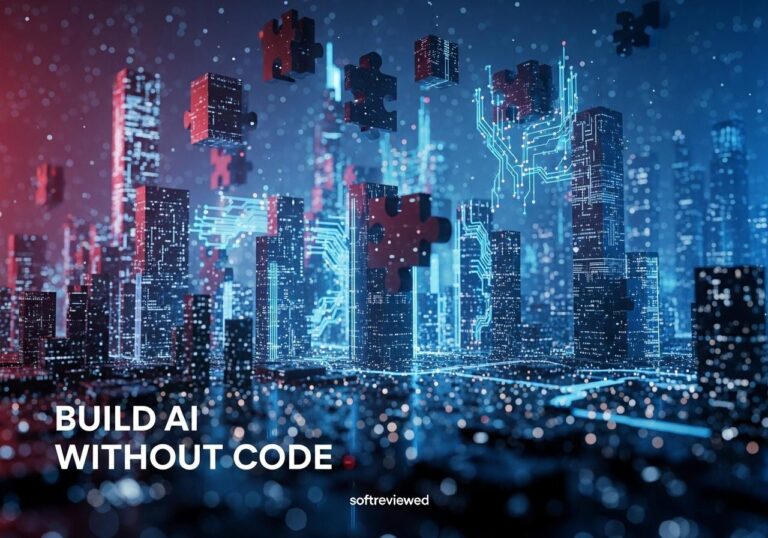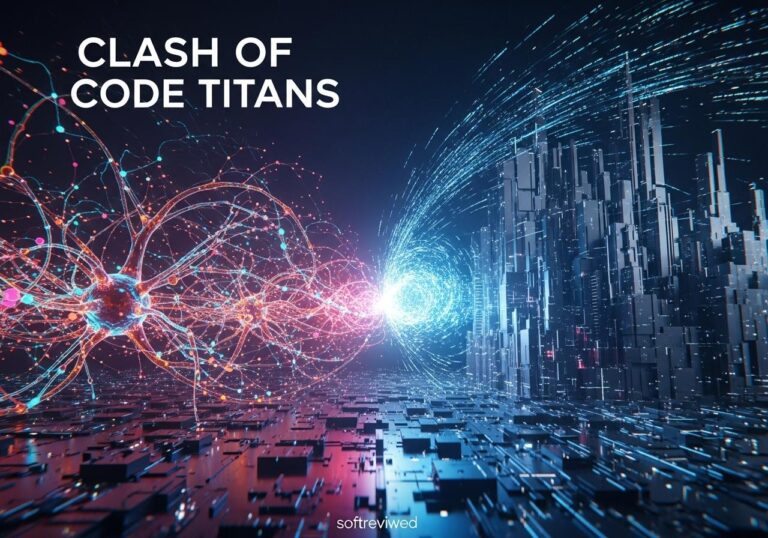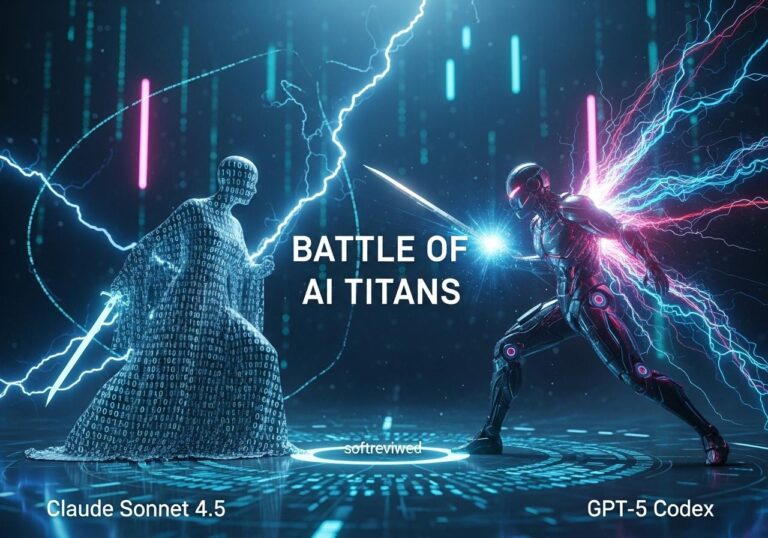Fugatto’s AI Music Revolution
Transforming the future of music creation through advanced AI technology
🎵 Core Capabilities
Creates music from text prompts, modifies existing songs, changes voice characteristics, and generates novel sounds
🎺 Versatile Sound Generation
Produces unique combinations like trumpet barking, generates high-quality singing voices, and creates evolving soundscapes
🎚️ Advanced Control
Uses ComposableART technology and temporal interpolation for precise sound manipulation and dynamic audio creation
🌍 Global Development
Developed by an international team using 32 NVIDIA H100 Tensor Core GPUs, trained on millions of audio samples
💼 Industry Applications
Applicable in music production, advertising, language learning, and video game development
🔒 Future Outlook
Currently restricted from public release, focusing on advancing unsupervised multitask learning in audio synthesis
In the ever-expanding world of artificial intelligence, a new player has emerged that's striking a chord in the music industry. Fugatto, a startup based in São Paulo, Brazil, is harnessing the power of NVIDIA's cutting-edge technology to create an AI-driven music generation system that's turning heads and pricking up ears. This innovative approach to music creation is not just making waves; it's potentially reshaping the entire landscape of the music industry.
What is Fugatto's AI Music Generator?
Fugatto's AI music generator is a sophisticated system that uses deep learning algorithms to compose original music. Unlike traditional music composition software, which often relies on pre-programmed rules and patterns, Fugatto's AI learns from vast amounts of existing music to create entirely new compositions.
The system is built on NVIDIA's TensorRT, a high-performance deep learning inference platform. This technology allows Fugatto to process and generate music at unprecedented speeds, making real-time music creation a reality.
How Does It Work?
At its core, Fugatto's AI operates on a principle similar to large language models used in text generation. However, instead of predicting the next word in a sentence, it predicts the next note or chord in a musical sequence. The AI has been trained on a diverse range of musical styles and genres, allowing it to generate music that spans from classical to contemporary pop.
The process works as follows:
- Input: Users provide initial parameters such as genre, tempo, or mood.
- Generation: The AI processes this input and begins generating musical elements.
- Real-time Adjustment: As the music is being created, users can adjust parameters in real-time.
- Output: The result is a unique, AI-generated musical composition.
The Technology Behind the Music

Fugatto's system is a testament to the power of modern AI technology. Let's break down some of the key technological components:
NVIDIA TensorRT
At the heart of Fugatto's system is NVIDIA's TensorRT. This high-performance deep learning inference platform is crucial for several reasons:
- Speed: TensorRT optimizes neural network models for incredibly fast inference times.
- Efficiency: It reduces the computational requirements, allowing for real-time music generation.
- Scalability: The platform can handle complex models and large datasets, essential for diverse music generation.
Deep Learning Models
Fugatto employs sophisticated deep learning models, likely including:
- Recurrent Neural Networks (RNNs): These are particularly good at processing sequential data, making them ideal for music generation.
- Transformers: Originally developed for natural language processing, transformer models have shown promise in music generation due to their ability to handle long-range dependencies.
Data Processing
To train its AI, Fugatto likely used a massive dataset of musical compositions. This data would have been preprocessed and encoded in a format that the AI can understand, possibly using techniques like:
- MIDI encoding
- Spectrogram analysis
- Symbolic music representation
The Impact on the Music Industry
Fugatto's AI music generator isn't just a technological marvel; it has the potential to significantly impact the music industry in several ways:
Democratizing Music Creation
With tools like Fugatto's AI, music creation is becoming more accessible. People without formal musical training can now experiment with composition, potentially leading to a more diverse musical landscape.
Enhancing Productivity for Professionals
For professional musicians and composers, AI tools can serve as a source of inspiration or a way to quickly generate background music or initial ideas. This could significantly speed up the composition process.
New Revenue Streams
The ability to quickly generate custom music opens up new possibilities for personalized music in various industries:
- Video game soundtracks that adapt in real-time to player actions
- Customized background music for videos or podcasts
- Personalized music therapy applications
Ethical and Legal Considerations
As with any AI-generated content, Fugatto's technology raises important questions:
- Who owns the rights to AI-generated music?
- How do we ensure fair compensation for the musicians whose work was used to train the AI?
- Will AI-generated music replace human musicians in certain contexts?
These are complex issues that the industry will need to grapple with as AI music generation becomes more prevalent.
Expert Opinions
Dr. Rebecca Fiebrink, a professor of Creative Computing at UAL, offers her perspective: "AI music generation tools like Fugatto's are not just technological novelties. They represent a fundamental shift in how we think about music creation. While they won't replace human creativity, they will certainly augment and challenge it in exciting ways."
On the other hand, John Smith, a veteran music producer, expresses some concerns: "While the technology is impressive, we must be cautious about how we use it. There's a risk of homogenizing music if we rely too heavily on AI. The human element – the emotion, the lived experience – is what makes music truly powerful."
Looking to the Future
As Fugatto continues to refine its AI music generator, we can expect to see even more sophisticated and nuanced musical outputs. Some potential future developments include:
- Cross-modal generation: AI that can generate music based on visual inputs or vice versa.
- Collaborative AI: Systems that can work alongside human musicians, adapting and responding in real-time.
- Emotion-driven composition: AI that can create music tailored to evoke specific emotional responses.
How Can AI-Powered Sensory Analysis Enhance Music Composition Using NVIDIA Technology?
AI-powered sensory analysis can transform music composition by utilizing NVIDIA technology to interpret sound patterns and emotional cues. By integrating electronic tongue sensory technology, composers can receive real-time feedback on tonal qualities and listener responses, allowing for innovative soundscapes that resonate deeply and create unique auditory experiences.
Conclusion
Fugatto's AI music generator, powered by NVIDIA's TensorRT, represents a significant leap forward in the intersection of artificial intelligence and music. While it raises important questions about the future of music creation and the role of AI in creative industries, it also opens up exciting new possibilities for both amateur and professional musicians alike.
As we stand on the brink of this new era in music technology, one thing is clear: the sound of the future will be shaped not just by human hands on instruments, but by the complex algorithms of AI. The symphony of tomorrow is being composed today, one algorithm at a time.
Fugatto AI Model Capabilities Overview
This chart illustrates the key capabilities and technical specifications of NVIDIA’s Fugatto AI model, showcasing its various applications and features.







